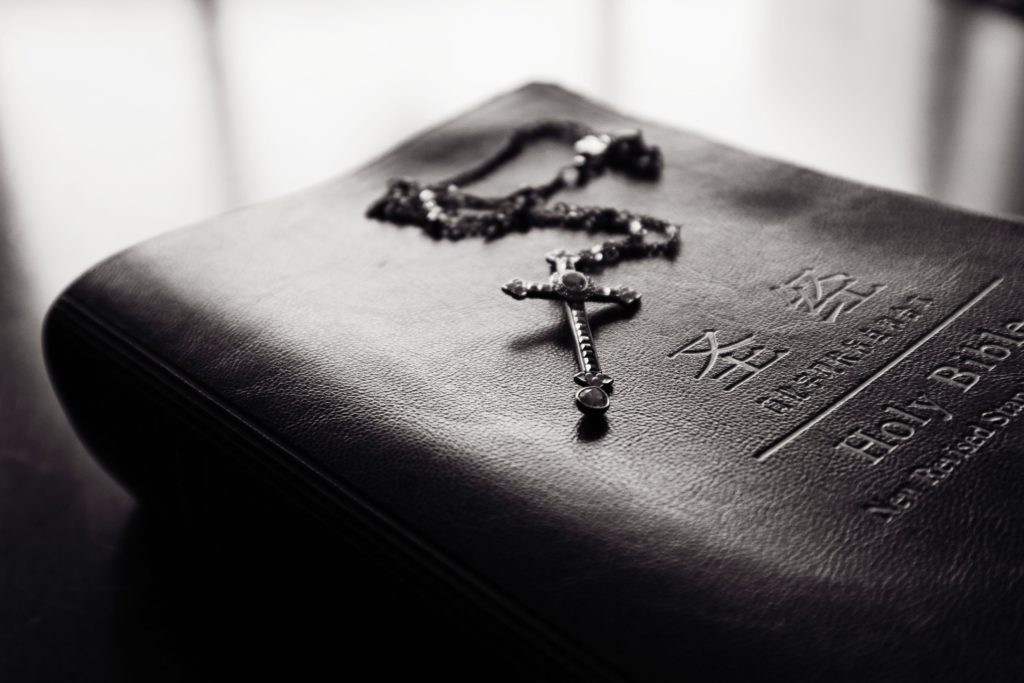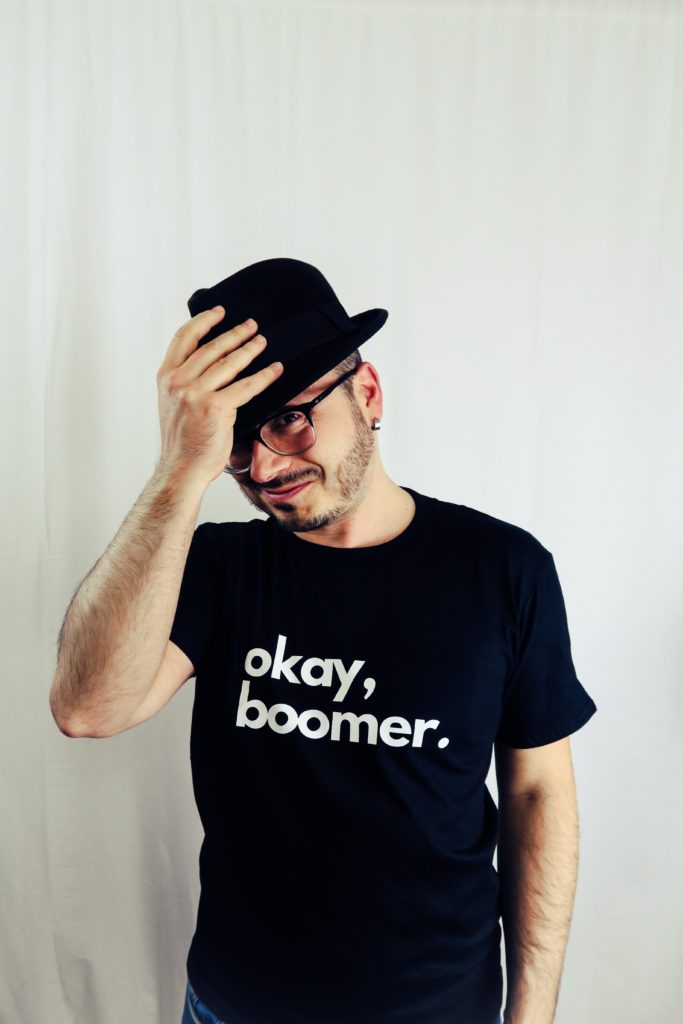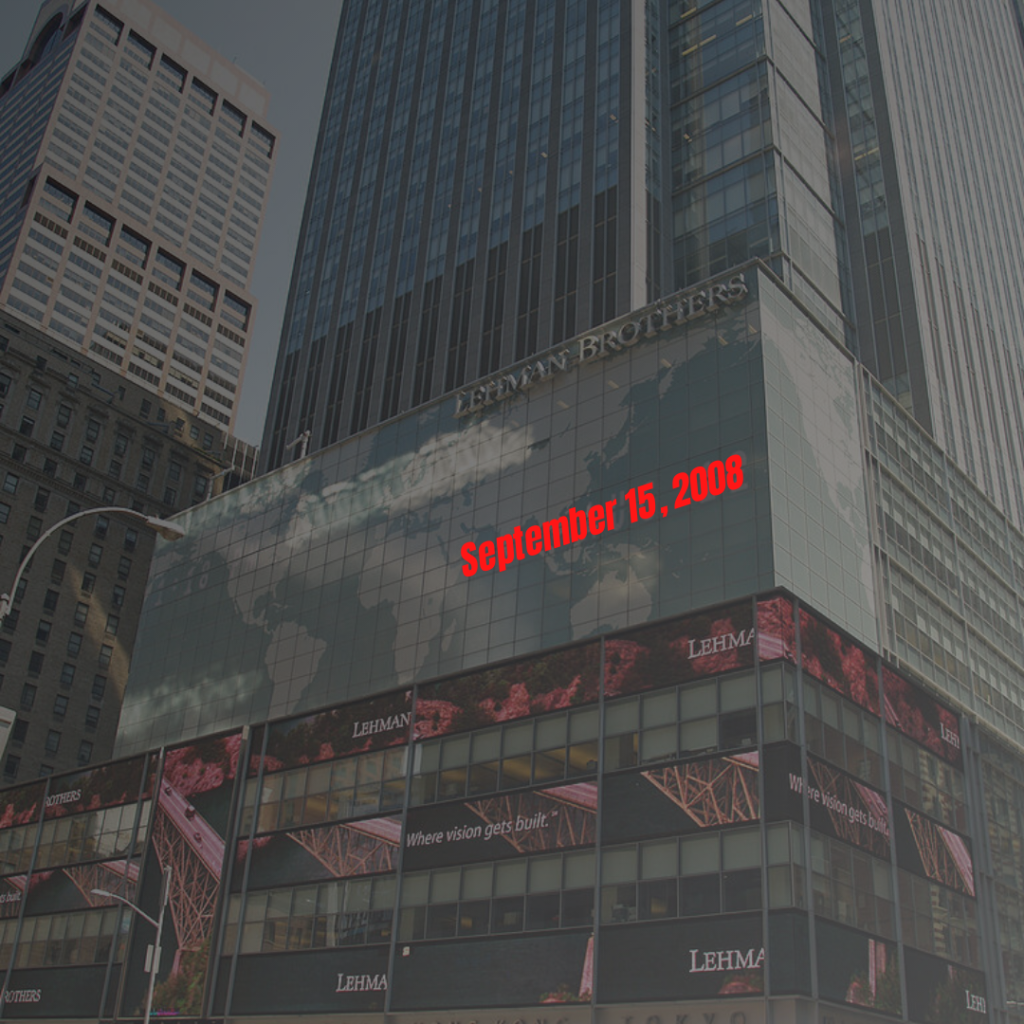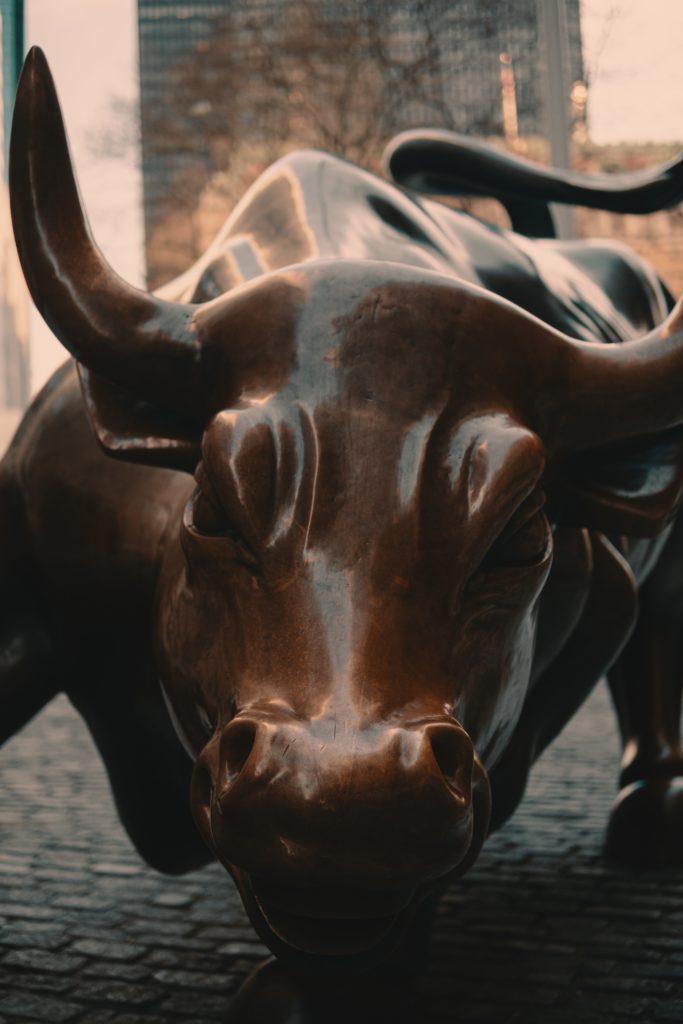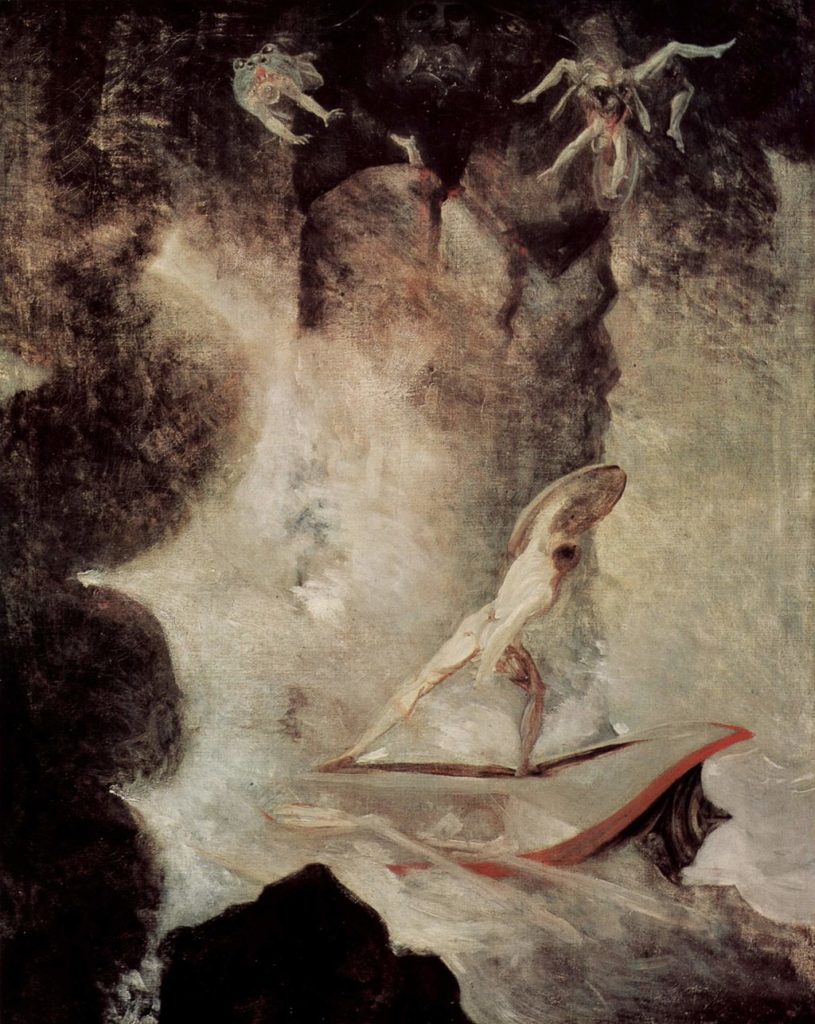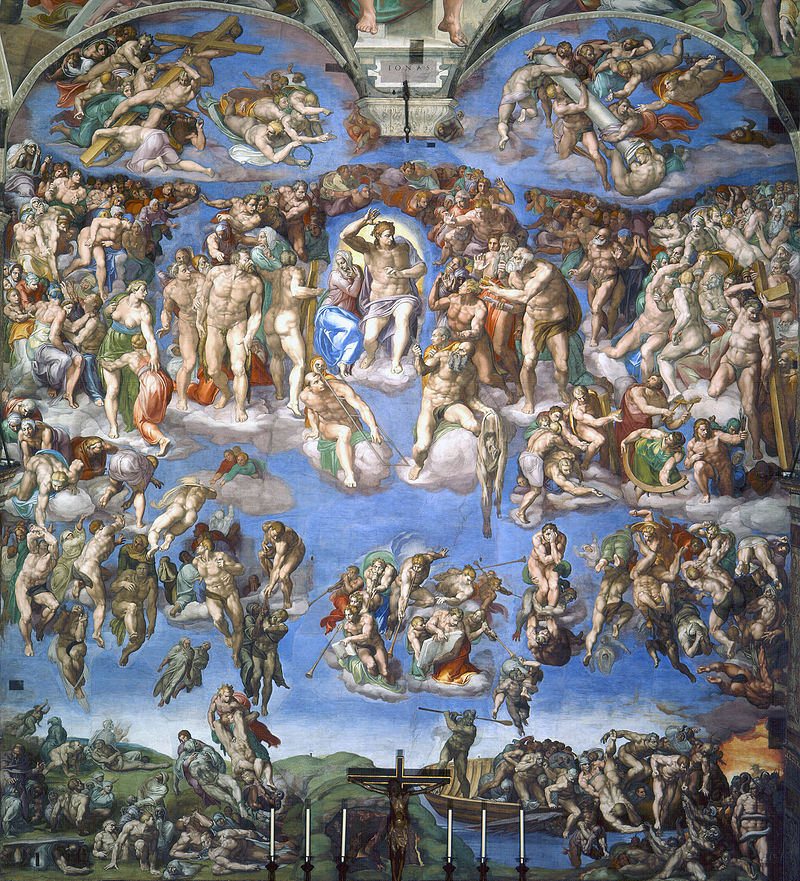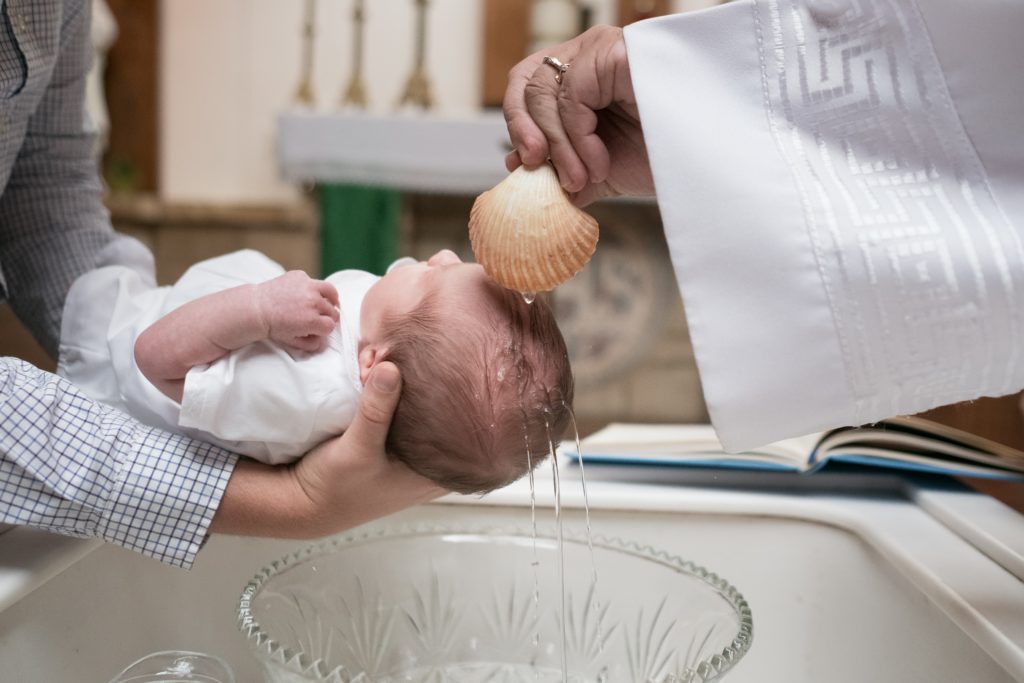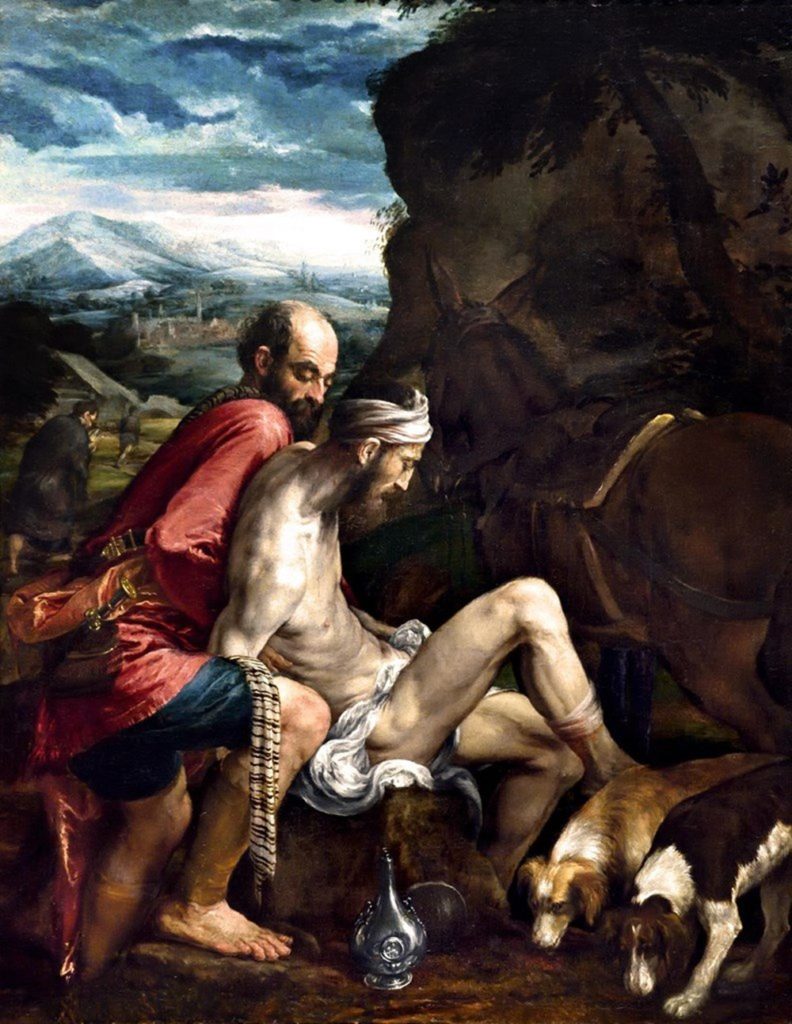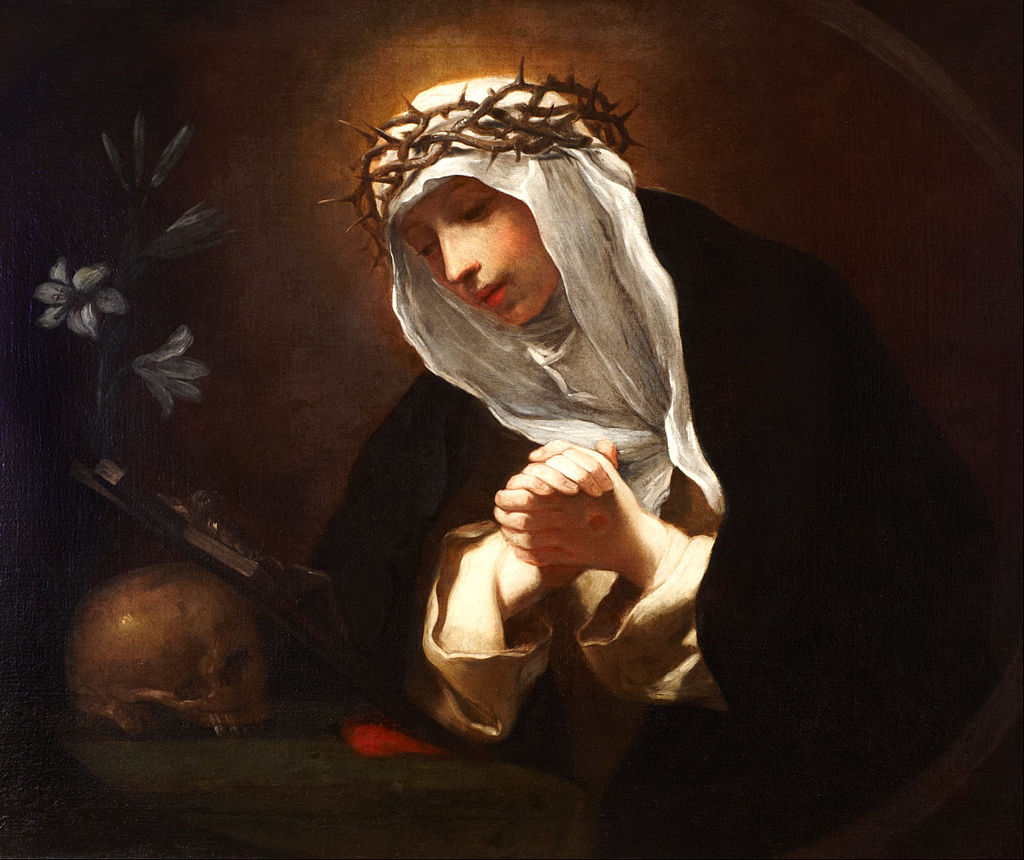
In the Catholic Church, today, April 29, is the feast of St. Catherine of Siena. She is a beloved figure and one of the most important mystics and church leaders in history. Her remarkable life is worth revisiting any day but particularly now for the historical similarities and for the insights it provides into the soul of the church.
Catherine of Siena was born at a time of when the Black Death was decimating Europe. Estimates of the number of people felled by the disease differ, but they range from a third to almost two-thirds of the population. Also, as Black writes, “Less well known is that the plague continued to strike Europe, the Middle East and beyond for the next four centuries, returning every 10 to 20 years.”
In the video, Skipper explains that the pathogen “remains with us today,” speculating that our herd immunity, among other changes, might have led to its decline. Hatcher remarked that “Paradoxically, society was able to cope much better in the fourteenth century with deaths on this horrendous scale than we would be able to cope today, and this is primarily because people were, to a degree, self-sufficient and independent. Whereas today, we have such complex interconnections that deaths on anything like that scale would cause complete chaos.”
Even with relatively preliminary data, it is clear that the coronavirus pandemic is nowhere near as deadly as the Plague was. Hatcher’s statement was quite prescient, as this is indeed what the world has experienced. In spite of the coronavirus being considerably less deadly, it has wreaked tremendous damage, particularly economically.
On the other hand, similar to the Plague, an entirely possible outcome might be that we will have to live with a persistent novel coronavirus much like we live with the flu. We should all have been aware of this possibility from the start of our battle with the virus.
Catherine of Siena – Mystic
Mystics are a special group within the church, and Catherine of Siena is emblematic of them. They have a special relationship with God and live in a way that others might find baffling. Their beings and their lives seem to defy the laws to which the rest of us consider ourselves subject, and their passionate devotion awes and mystifies us.
More broadly, mystics serve a greater role in the church. They remind us that the church, as a whole, is actually a mystical body. To reprise the thrust of G.K. Chesterton’s argument from yesterday’s post, Christianity is really an irrational religion. Christians are not really about checking piety or other boxes as acts of devotion.
On the contrary, our faith is and always has been expressed by the irrational: the erection of stunningly beautiful testaments of love and devotion to our creator, which are visited by tourists and are destinations of pilgrimage for the faithful the world over, lives of tremendous sacrifice as Catherine of Siena’s or, more recently, Mother Teresa’s of Calcutta. We are called to not measure and calculate our love, but to leave it all behind and to live with faith abandon to our Lord. His will be done.
Perhaps, it is hard to sense this as most Christians, wrapped up in our daily, often tedious and stressful lives, worship in a more perfunctory but hopefully still sincere manner. We go to weekly services and progress through the liturgical calendar, paying a bit more reverence during its highlights. Again, in reference to yesterday’s post, if we are the “sense,” mystics are the “sensibility” of the church.
They make their way through the world in an enviable communion with God. What would seem entirely irrational for many of us, their reclusion, asceticism, sacrifice and visions, seem entirely in keeping with who they are. In the collective, they, along with the ascetics, are the legacy of John the Baptist, who resided in the dessert, eating locusts and wild honey, calling on his fellow Jews to be baptized, with one notable baptism.
Catherine of Siena’s power and influence in the church, which was considerable, as she is credited with convincing Pope Gregory XI to return to Rome, did not really come from reason. Her power and influence came from her mysticism, her spiritual connection with God.
We are dust and to dust we shall all return. With death or the threat of it seemingly everywhere, let us remember this truth while also remembering that there are those who live and have lived among us who seem to have no fear of death. While their bodies surely return to dust, their spirits soar free of their bodies while still living. That is the power of deep faith in God. It is not rational. It is mystical.


